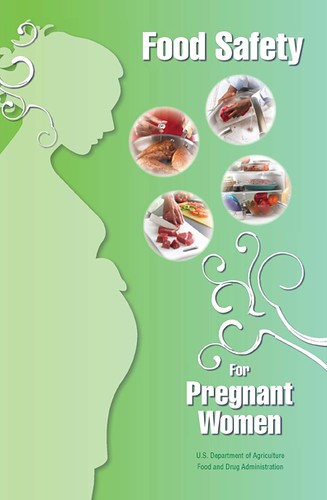If you’ve had food poisoning, you know it’s not something you want to experience again. But for “at-risk” individuals, it can be life threatening. People with cancer, diabetes, kidney disease, HIV/AIDS, or an organ transplant—as well as healthy older adults and pregnant women—who have weakened immune systems are at increased risk for foodborne illness.
The safety of the food these groups eat is just as important as the medicines that help them regain or maintain their health. To help at-risk persons avoid food poisoning, the USDA’s Food Safety and Inspection Service and the U.S. Food and Drug Administration have collaborated to publish a series of five updated food safety booklets designed specifically to educate older adults, transplant recipients, and people with HIV/AIDS, cancer or diabetes.
In addition, a new food safety booklet for pregnant women has been added to the series. Pregnant women are particularly at risk for listeriosis, an illness caused by the pathogen Listeria monocytogenes. Hormonal changes during pregnancy have an effect on a mother’s immune system that increases her susceptibility to listeriosis. The bacteria can be transmitted to the fetus through the placenta even if the mother is not showing signs of illness. This can lead to premature delivery, miscarriage, stillbirth, or serious health problems for her newborn.
The booklets provide practical guidance on how to reduce your risk of foodborne illness, including the following:
-

Cover of the booklet for Food Safety for Pregnant Women Major pathogens that cause foodborne illness (such as Campylobacter jejuniand Escherichia coli O157:H7)
- Symptoms to watch for when you feel like you have a foodborne illness
- High and low-risk foods when eating at home
- Basic rules for ordering when eating out
- Food cautions for traveling internationally
- Food storage charts
The booklets are available to individuals and to health professionals for distribution to their patients. The information is also valuable as an aid for health professionals to refresh their knowledge of how foodborne illnesses can threaten the lives of patients in these at-risk groups.
How to Obtain Free Copies
To request free copies of the booklets, call the USDA Meat and Poultry Hotline weekdays from 10 a.m. to 4 p.m at 1-888-MPHotline (1-888-674-6854), or email mphotline.fsis@usda.gov. These publications also can be downloaded at www.foodsafety.gov/poisoning/risk/index.html.
